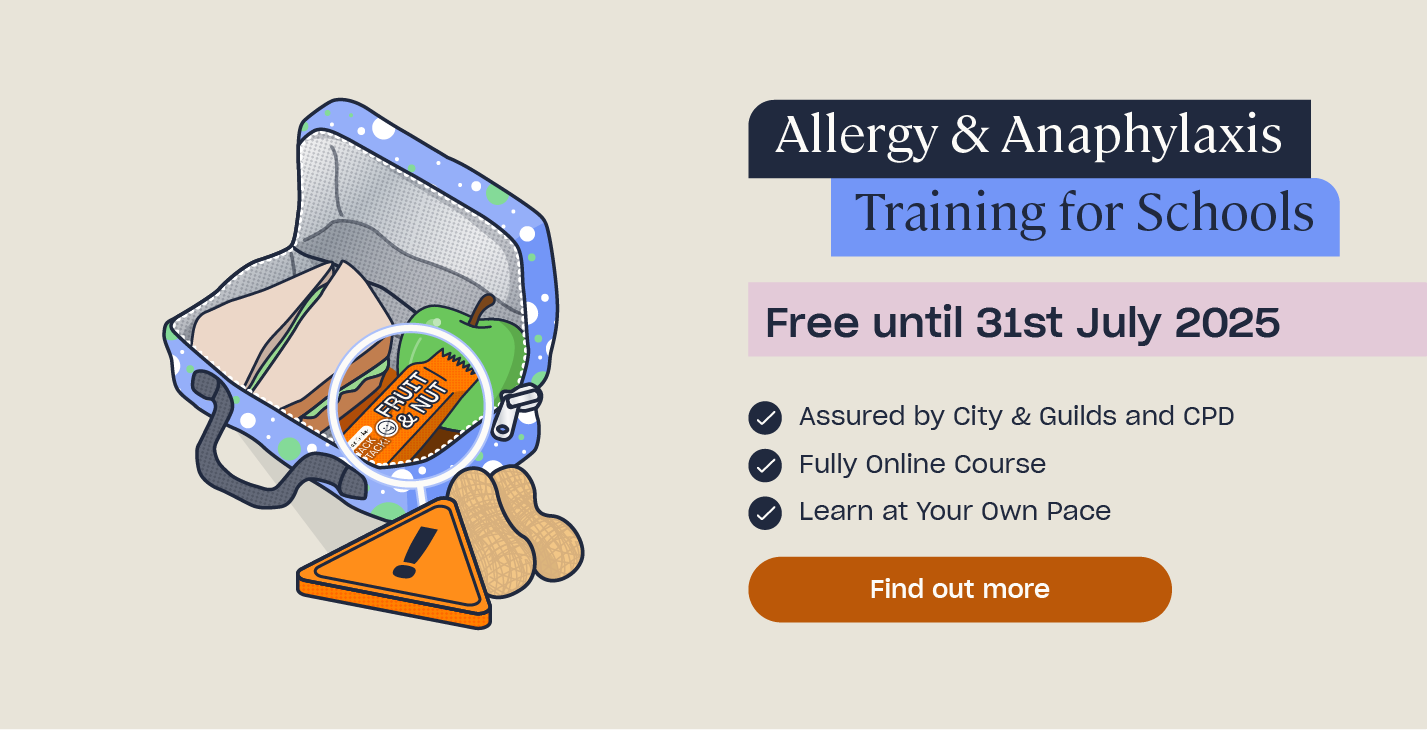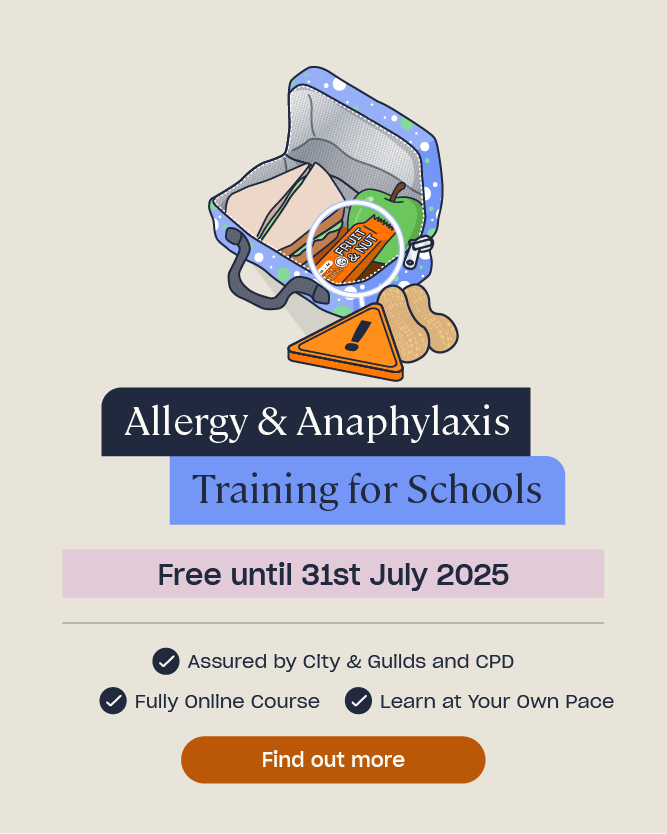Guidance on Medication in Schools
Children with medical conditions at school need to be supported by all members of staff in order to safeguard their health, welfare and education. All teaching staff have a duty of care to safeguard the children they work with and administering medication at school is an important part of this role. In this article, we’ll outline the guidelines on administering medication in schools, discuss the requirements for a medication in schools policy and help you to understand more about this important responsibility.
Medical Conditions at School
Many children have long-term medical conditions that they need to manage on a daily basis. Some of these children will have highly complex care and intimate treatment needs, whilst others will have short-term medical conditions that they need to take prescription medication for. No matter their needs, all of these children will require support with administering medication during the school day, and this is where teaching staff play an important role.
The Children and Families Act 2014 states that all schools must have arrangements in place to support pupils with medical conditions. The Department for Education also has statutory guidance to help schools comply with this requirement.

It’s important that all schools should have an understanding of:
- Each child’s named medical condition.
- The symptoms, triggers and treatment for the medical condition.
- The child’s specific needs as a result of their medical condition.
- The level of support needed and who will provide it.
- Special arrangements needed for activities outside of the normal school curriculum.
- Any additional special educational needs (SEN) the child has.
Guidelines on Administering Medication in School
It’s essential that all schools recognise that medical conditions can not only be life-threatening for a child, but can also have a significant impact on their ability to learn and achieve their potential in the classroom. This is why children with medical conditions must be supported fully.
The following guidelines on administering medication in school will help you to fulfill your duty of care towards children with medical needs:
- Medicines should only be administered during schooltime when it would be detrimental to a child’s health not to do so.
- Children under the age of 16 should never be given medicine at school, whether prescription or not, without their parents’ consent.
- Children who take medicines or use medical devices, such as inhalers, insulin or auto-injectors, should know where their medicines are kept at school and always be able to access them.
- No child should be forced to take their medicine if they are refusing to do so. In these instances, the child’s parents should be informed and any procedures named in the child’s healthcare plan should be followed.
- Members of staff have the right to refuse to administer medication to a child if they’re not trained to do so, don’t feel comfortable doing so or it’s outside of their job role.
- The school should keep a written record of all medicines administered, including who it was given to, when, how much and by whom.
- If a child falls ill at school, whether because of a medical condition or otherwise, their parents or carers should always be informed.
Who Can Administer Medication in Schools?
Any member of staff within your school can be trained and supported to administer medication to students who need it. All schools already have access to a school nurse and this person is well-suited to supporting children with medical needs, implementing healthcare plans and providing advice.
Assisting and supporting a child with a medical condition should not just be the responsibility of one person, so it’s important that multiple staff members are given appropriate training.

Your medication in schools policy should identify the roles and responsibilities of everyone involved in the administration of medication and include input from parents, healthcare professionals, pupils, etc. where appropriate. There should also be a list of medical tasks that members of staff must never do, i.e. those that should only be carried out by a registered healthcare professional.
No member of staff should give out prescription medication or perform healthcare procedures without appropriate specialist training in how to administer medication and provide support to children who need it. A basic first-aid certificate is not sufficient in these situations.
The school’s headteacher has overall responsibility for ensuring the appropriate number of staff members are trained, that there is enough contingency cover and that staff know what to do in emergency situations. In some cases, additional members of staff may need to be recruited to fulfil these needs. Furthermore, headteachers must ensure that teachers are appropriately insured in order to provide care to students with medical conditions.
Looking to Learn More?
All members of staff in education should have a good understanding of children’s health needs and how to support basic first aid situations. Our online Paediatric First Aid and Allergy & Anaphylaxis for Schools courses are great starting points, or view our full range of Courses for Teaching and Education.
Medication in Schools Policy
It’s important that all schools develop a robust medication in schools policy in order to si[port their students with medical conditions. The policy should be reviewed and updated regularly and be easily accessible by all school staff, parents and pupils.
Key details that should be included in a medication in schools policy are:
- The roles and responsibilities of everyone involved in supporting medical conditions, including the named member of staff who has overall responsibility for implementing the policy, the names of who is responsible for administering medicines and whose role it is to ensure the necessary medical equipment is available in school.
- Contingency arrangements in case of staff absence or for when responsible people leave the school for any reason.
- The name of who has responsibility for ensuring staff receive suitable training, plus details of how training needs are assessed, who provides training and when.
- The procedure that should be followed whenever the school is notified that a pupil has a medical condition.
- The procedure that should be followed for managing students’ prescription medicines at school, including the arrangements for children who are able to administer their own medicines or manage their own health needs.
- The risk assessment process to follow for activities outside of the normal school curriculum where staff must ensure that pupils with medical needs can participate safely, such as school trips and sports days. It’s best practice to carry out a school trip risk assessment in consultation with parents and students.

- Details of who has responsibility for writing individual healthcare plans (IHPs) for students who need them. An IHP provides the school with clarity on the child’s medical condition and what support they need. It should be created in partnership with parents, healthcare professionals and, if appropriate, the child.
- Medication is usually prescribed and sometimes a controlled substance, so there needs to be a misuse of drugs procedure to handle any inappropriate situations.
- Details on the emergency procedure to follow should a child’s medical condition require hospitalisation whilst at school. In these instances, staff should call for an ambulance immediately and not take students to hospital unsupervised in their own private cars.
- Explicit information on what constitutes unacceptable practice in regards to medication in schools. For example, preventing a child from having access to their medication, ignoring the child’s needs, penalising children for low attendance as a result of a medical condition, making parents attend school to administer treatment to their own child or preventing children with medical needs from taking part in activities.
- Details on how complaints can be raised and how they will be handled. Complaints about how a child’s medical needs are handled can be made by anyone, including members of staff, parents, carers and students.
Administering Medication and Safeguarding
Sometimes, administering medication or assisting with treatment can be invasive for the child and may require intimate physical contact by a member of staff. As a result, the risk of physical and/or sexual abuse is increased.
For this reason, staff should always work in pairs and never administer intimate care or procedures alone.
Your school should have a clear intimate care policy that specifically explains how to provide medical support that involves contact with, or exposure of, a student’s body appropriately and with safeguarding in mind. Our further guidance on Child Sexual Abuse in Schools and Signs of Abuse in Children, as well as our free Child Abuse Resource Pack for Schools, will help to support your knowledge in this area further.
For children with medical conditions at school, teachers can often be an important lifeline. Members of staff with responsibility for administering medication to pupils at school must have a thorough understanding of each individual child’s medical needs so that they can be fully supported and their health, wellbeing and education continually safeguarded. A robust medication in schools policy will help education staff to fulfill this important responsibility.











